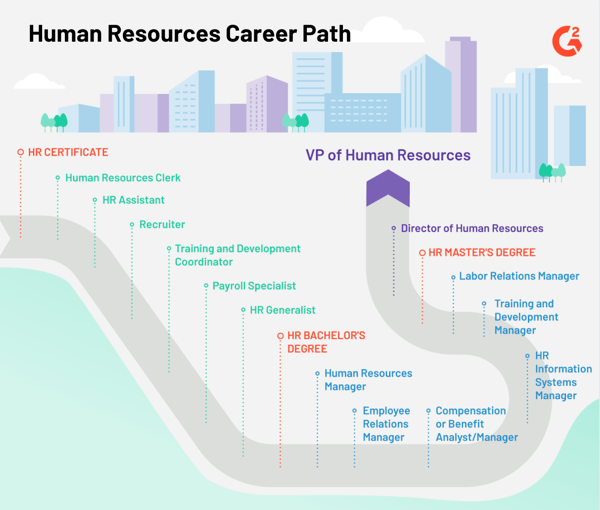November 30, 2022
 by Derek Doeing / November 30, 2022
by Derek Doeing / November 30, 2022

Advancing your career is an endless but often exciting process.
For human resources professionals, you can take on many opportunities and specializations throughout their careers. If you consider yourself more of an HR generalist, the role of an HR manager may be the right choice for you.
An HR manager is a generalized role within a human resources team that oversees recruitment, interviewing, training, and benefits. HR managers may lead a team of specialists or conduct specialized duties depending on the company's size. This individual plays an important role in strategic planning and serves as a liaison between administrative staff and employees.
There's no denying that an HR manager has a lot on their plate. Thankfully, there's human resource management (HRMS) and human capital management (HCM) software that HR managers can use to streamline processes and manage tasks related to recruiting, employee training, and performance reviews.
An HR manager is responsible for overseeing human resources department processes and managing employee functions. Individuals within this role need to be proficient in recruitment and candidate sourcing, training and development, compensation and benefits, employee relations, and consulting with leadership on the needs of all employees.
The day-to-day role of an HR manager can vary greatly between organizations and industries, in addition to the size of the team they manage. Specialization can help you become an HR manager, but to be truly effective in the role, you need to know as many HR functions as possible – and the ability to lead a team.
In a larger company that focuses on more specialized HR management roles, the specialties will be broken down by:
There are a few ways you can set yourself up for success in becoming an HR manager at your desired company.
Earning an HR certification will put you ahead of other candidates who only come to the table with a bachelor’s degree. It’s important to note that most of these certifications do require experience in the field and a paid exam to complete.
Alyssa Kowalczyk
HR Manager, Truly Engaging
Some certifications an individual can receive to start their career as an HR manager are:
Creating application materials that make you stand out is essential to getting the job. You’ll want to craft a specific HR manager resume and cover letter that shows you have the experience and qualifications to earn the spot.
After you win the employer over with your application materials, you’ll want to brush up on HR manager interview questions that could pop up. Many interviewers want you to answer authentically without scripting your responses. Being prepared for what you may be asked allows you freedom in the moment to give thoughtful and honest answers.
While the job description for an HR manager may vary depending on the size of the organization and the industry it's in, below is an example of a human resources job description that one may see for an HR manager role.
The human resource manager will lead and direct the routine functions of the human resources (HR) department. This will include hiring and interviewing candidates for open roles, administering pay, benefits, and leave, and enforcing company culture, policies, and practices.
The role of the HR manager will include the following supervisory responsibilities:
The role of the HR manager will include the following duties and responsibilities.
The role of the HR manager will include the following required skills and abilities.
The role of the HR manager requires the following education and experience.
HR manager is just one stop on your human resources career path. Successfully becoming an HR manager means you’re already on your way to the top.
It all starts with receiving your first HR certificate and getting a job as an HR clerk. While everyone's career path will have its unique ebbs and flows, this is one example of what an HR career path may look like.

People are an essential component of any business, and it takes the right person to manage people as a resource. HR managers play a vital role within a company, so the person within this role must have the necessary skills and qualifications to excel!
Explore the best HCM software that equips HR managers with tools for payroll, benefits, performance, and workforce planning.
This article was originally published in 2019. It has been updated with new information.
Derek is a former G2 content associate. He can usually be found discussing pop music, politics, or digital marketing on the internet. (he/him/his)
Are you in the market for a new HR Manager?
 by Derek Doeing
by Derek Doeing
If you’re an HR Manager, or interested in becoming one, it’s important that you know exactly...
 by Derek Doeing
by Derek Doeing
As you look towards advancing your career in human resources, it’s important that you do all...
 by Derek Doeing
by Derek Doeing
Are you in the market for a new HR Manager?
 by Derek Doeing
by Derek Doeing
If you’re an HR Manager, or interested in becoming one, it’s important that you know exactly...
 by Derek Doeing
by Derek Doeing


